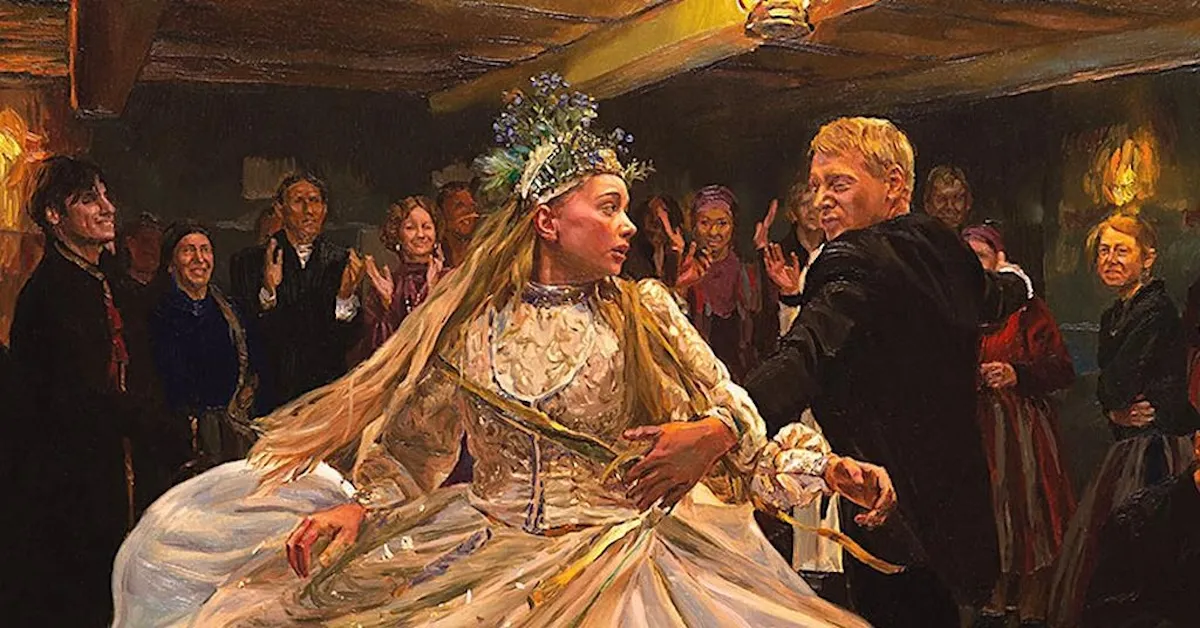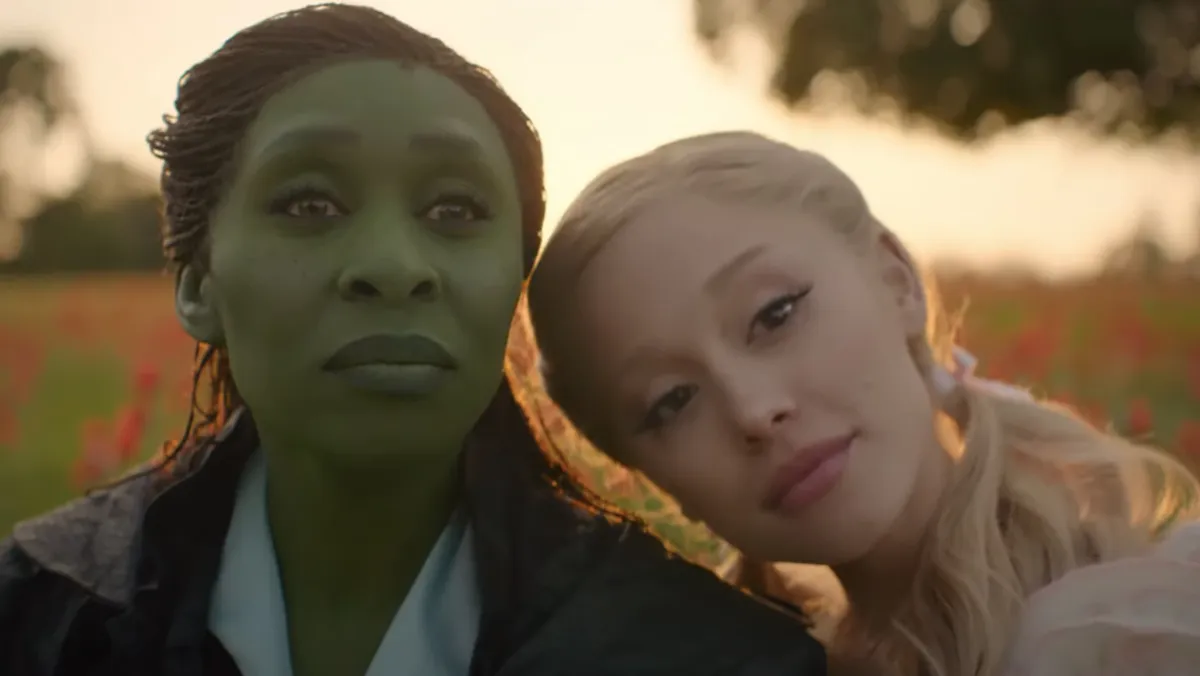How does one translate The Peasants, Władysław Reymont’s 900-page saga of Polish farmers at the turn of the 20th century, into a film? If you’re the filmmaking team behind the innovative film Loving Vincent, you hire more than a hundred artists to animate the story using real oil paintings.
The Peasants tells the story of Jagna (Kamila Urzędowska), a young girl growing up in a rural village in Poland. Jagna’s beauty and charm catches the eye of several men in the village, including the handsome Antek (Robert Gulaczyk) and his father, the powerful widower Maciej (Mirosław Baka). Jagna is in love with Antek, but when Maciej decides to take Jagna as his new wife, she has little choice in the matter. Not that a relationship with Antek would have worked out anyway, seeing as he’s already married with a family.
But The Peasants isn’t just a story of star-crossed lovers. In Jagna’s world, everyone is complicated, and politics are everywhere. The peasants of the village are embroiled in a fight over a nearby forest, which is being cut down by a rival landowner. Jagna’s new stepfamily hates her after Maciej gives her six acres of his land as a bride price. The gossip that abounds in the village—most of it centered on Jagna—isn’t just a way for people to pass the time between chores. It can have devastating consequences when resources are scarce, conflicts are volatile, and neighbors can turn on each other in an instant.
Nor is Jagna just a doe-eyed child caught up in the intrigue. She’s as complicated as the rest of the characters, making morally questionable choices and rebelling whenever she can. It’s hard to watch Jagna’s free spiritedness slowly get crushed under the weight of marriage and malicious gossip, but her fierce determination to salvage a life for herself makes her a heroine you can root for.
Art is everywhere in The Peasants. The animation takes inspiration from Polish realist paintings like Józef Chełmoński’s Indian Summer and Storks. Jagna creates beautiful paper cutouts that she hangs up around her home. The characters wear colorful textiles and beads, and the film’s four seasons are marked with folk songs and dances. This film is brimming with beauty, even as it explores some ugly subject matter.
Because make no mistake: The Peasants is a brutal film. It’s clear from the beginning that Jagna has no path that will lead her to the freedom she wants, and sure enough, by the end of the movie, the villagers’ simmering resentment against her—along with her own relentless naiveté about what simple pleasures she can get away with—erupts in violence. Inevitably, the violence against Jagna is sexualized, with both the men and the women of the village using her as a scapegoat for their own anxieties and superstitions. It’s hard to watch, yet still manages to end on a strangely hopeful note.
The Peasants walks a difficult line, showing the beauty of folk life without romanticizing it. Its unconventional animation style might make Jagna and the other characters seem like snippets from a fairy tale—but the human core of the story reminds us that they’re just as human as we are.
The Peasants comes out in theaters on January 26.
(featured image: Sony Classics)










Published: Jan 22, 2024 09:00 am